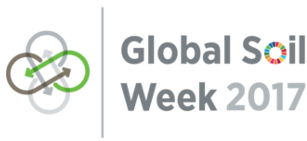
Soils and land provide the basis for more than 95% of the food produced in the world, are the largest terrestrial carbon sink and host a large pool of biodiversity. Achieving the 2030 Agenda as a package – particularly the goals and targets related to poverty eradication, food security, health, gender, water, energy, cities, climate change, and the protection of terrestrial ecosystems – will depend greatly on soil and land resources. Photo by Chiussi/Agentur StandArt
Piloting exchange and contributions towards a Global Thematic Review on Land and Soil in support of the High-Level Political Forum
Global thematic reviews …
… to support an integrated implementation of the 2030 Agenda
Achieving sustainable development according to the 2030 Agenda, in all countries of the world, represents an unprecedented challenge – and a once in a generation opportunity. Addressing the multiple linkages between the different SDGs and between countries requires innovative ways to reduce complexity. While implementation will take place at the national level, global reviews can support an integrated approach to implementation. Global follow up and review can also ensure that activities at national level contribute to achieving the SDGs at a global level.
This is a task for follow-up and review processes: Appropriately designed global follow-up and review processes can identify and present these linkages to inform national level implementation.
… to support inclusive and participatory follow-up and review processes
Ensuring that no one is left behind requires that stakeholders are involved at all levels, including by their governments in the process of setting national priorities. It has been agreed in Resolution A/Res/70/1 of the UN General Assembly that follow-up and review processes should be open, inclusive and participatory. However, in some contexts, the space for civil society to operate is limited and citizens find it difficult to make their voices heard. Follow-up and review processes at the global level can support national processes to ensure that the principles of the 2030 Agenda are upheld. Inclusive reviews will also allow integrating many different perspectives on the issues covered by the SDGs.
The time is now! Designing global thematic reviews in support of national level implementation
The implementation of the 2030 Agenda and national commitments will only be successful if organized as a collective learning process. In this regard, follow-up and review processes play a crucial role for a transformational 2030 Agenda. They need to be evidence based and provide accessible and reliable data. There is also the need to consider all sorts of knowledge, including traditional knowledge, in a participatory way. In order to make this wealth of information usable for decision-makers, there is a need to review and synthesize data. There is a need to explore how to best design global follow-up and review processes to ensure that all efforts at national level contribute to achieving the SDGs. Let us jointly seize this opportunity! Let us pilot contributions to a Global Thematic Review on Land and Soil through the Global Soil Week.

Reviewing progress through the lens of land and soil will provide insights into crosscutting issues that are related to the themes planed for the next HLPFs until 2019 but also to the general review of progress towards achieving the 2030 Agenda. Download our flyer for the HLPF in July 2016.
The Global Soil Week in a nutshell
The GSW is a global, inclusive multi-stakeholder platform for sustainable soil management and responsible land governance. The GSW focuses on poverty reduction, food security and nutrition, climate change mitigation and adaptation, sustainable development of cities and a land degradation neutral world.
Our track-record:
- 3 editions so far: 2012, 2013 and 2015 – with 600 participants from 80 countries
- Brief for the Global Sustainable development Report 2016: Thematic Reviews in the 2030 Agenda: the case for a review of natural resources
- SDGs Bulletin by IISD: A Summary of the Conference Jump-starting the SDGs in Germany, Volume 208, Number 15, 2016
- Issue Brief: Towards an Integrated and Inclusive Follow-up and Review of Natural Resources, 2015
- Working Paper: The Role of Biomass in the Sustainable Development Goals: A Reality Check and Governance Implications, 2015
- Award-winning animation film: Let us talk about soil! And its successor: Better save soil!
We cherish your comments on the proposal and welcome additional strategic partners! Interested?
Please contact:
Prof. Dr. Dr. h.c. Klaus Töpfer, Chair of the Steering Committee of the GSW
Alexander Müller, Vice-chair of the Steering Committee of the GSW
Dr. Jes Weigelt (jes.weigelt@iass-potsdam.de), Coordinator of the GSW
Our partners
- TMG. ThinkTank for Sustainability
- Federal Ministry for Economic Coorporation and Development (BMZ)
- Deutsche Gesellschaft für Internationale Zusammenarbeit (GIZ)
- United Nations Environment Programme (UNEP)
- Food and Agriculture Organization of the United Nations (FAO)
- United Nations Convention to Combat Desertification (UNCCD)
- European Commission
- International Union of Soil Sciences
- Institute for Advanced Sustainability Studies (IASS)
- Federal Ministry of Education and Research (BMBF)
- Land Brandenburg
- Umweltbundesamt
